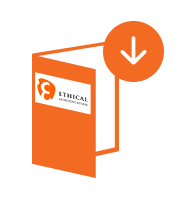In the 20th century, the internet revolutionized many businesses, including of course Drug Research & Development. One revolution bringing another, cloud computing is now shaking the foundation of clinical software implementation and machine learning is opening new horizons.
Even in the very first days of Clinical Research, the fundamental principles of GCP (Good Clinical Practice), such as transparency and traceability of the information were fulfilled.
However, the volume of data exchanged was manageable with paper case report forms (CRF) and hand-delivered queries. Documented processes for transcription of the information from paper to electronic databases (e.g. double data entry) ensured data quality.
Computers were gradually introduced in all aspects of clinical development. As the volume of structured and unstructured data increased, specialized clinical software of various types emerged such as Clinical Trial Management Systems (CTMS), Electronic Data Capture (EDC), Electronic Document Management (EDMS) and Electronic Submission Management (eSub).
These platforms were installed locally at the premises of each company, requiring expensive hardware and important technical support. Updates were time consuming and costly. Only the larger companies could afford such platforms and many users found them unfriendly and complicated to use.
As cloud computing is progressing, these tools are being replaced by Clinical Software Services platforms. EDC and Interactive Voice/data Response Systems (IxRS) are exclusively provided as online Clinical Software Services and other functions such as EDMS are gradually moving to the cloud and provided as Software-as-a-Service (SaaS).
The main benefit of this shift is costs reduction as cloud computing allows a better use of computing power and server potential. In addition, Clinical Software Services offered as SaaS allow the users to pay only for what they use. Furthermore, maintenance fees are replaced by usage fees and a small team of technicians is sufficient for maintaining and updating the Clinical Software Services platforms. Last but not least, users benefit instantly from all improvements, corrections, patches that the vendor applies to the software.
Now machine learning is being added to the potential services provided and will most certainly bring yet another revolution to the way we conduct our business by impacting not only the management of content but the content itself. Clinical Software Services will gradually integrate artificial intelligence and machine learning technologies to help create, manage, re-purpose and direct content.
Finally, in this context, users’ groups become extremely important as their collective influence drives the software evolution and any decision applies to all users of the system. If your company is using Clinical Software Services, it is highly advisable to join a users group and make sure your voice is heard.
DOWNLOAD NOW THE FREE ENDPOINT ADJUDICATION HANDBOOK
The Complete Manual / Reference Book (34 pages) with all the topics related to the Independent Endpoint Adjudication Committees Management




